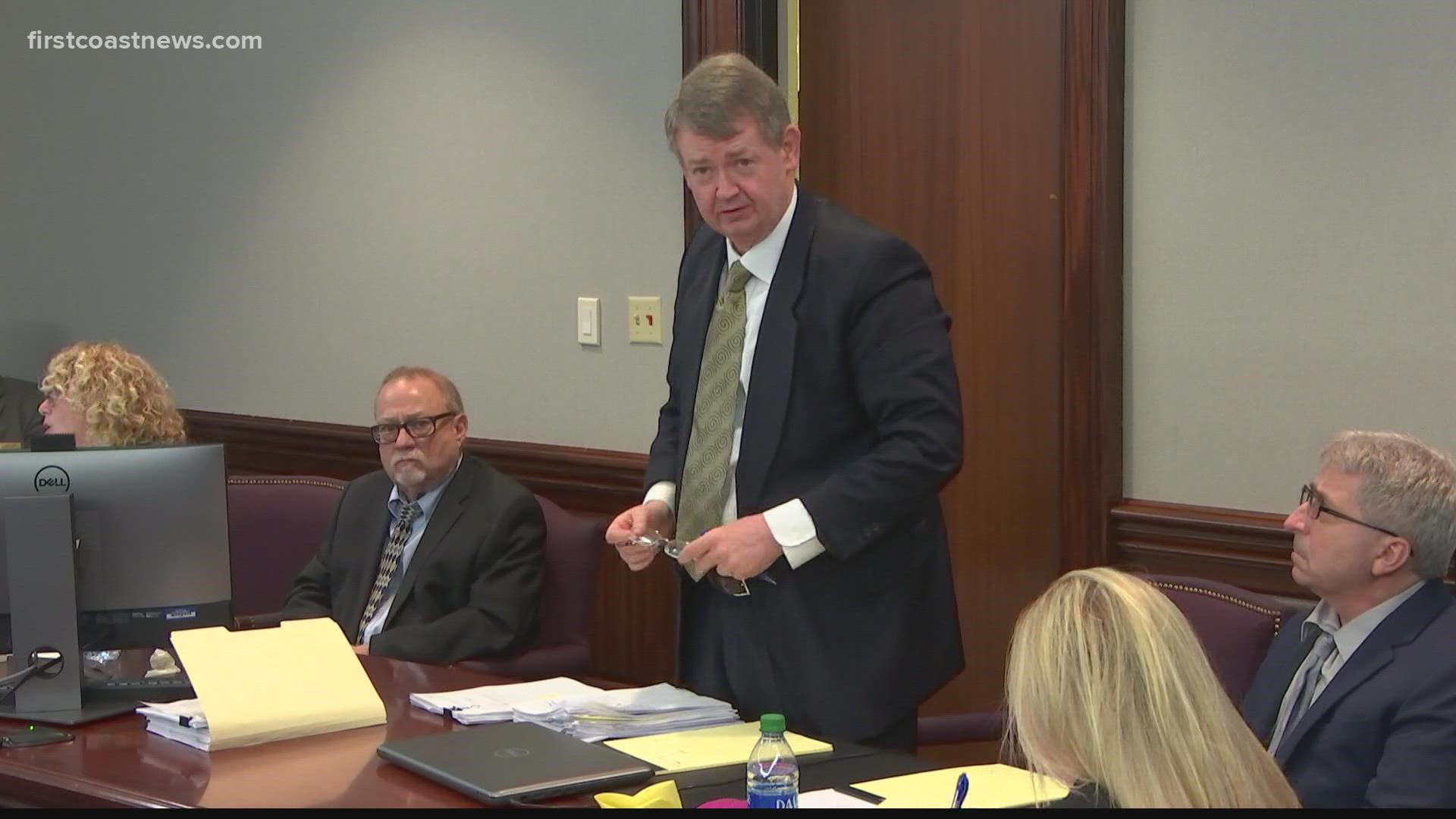BRUNSWICK, Ga. — A judge concluded "there appears to be intentional discrimination" in selecting jurors in the high profile case against three men accused of murdering Ahmaud Arbery, but he stopped short of reversing their peremptory strikes.
"One of the things counsel recognizes is the racial overtones in this case," Judge Timothy Walmsley said. "Quite a few African-Americans jurors were excused through peremptory strikes but that doesn’t mean that the court has the authority to receipt them [return them to the panel]."
A mostly white jury was chosen after the defense struck 11 of 12 Black jurors from the pool of eligible jurors.
The judge said his hands were tied because of limits on the law. "At least in the state of Georgia, the court if it hears a legitimate, non-discriminatory, clear, reasonably specific reason related to the case [to strike a juror], that is usually enough to get the court to a finding where the panelist doesn’t need to be receipted."
He added, "What the court's being asked to do here is [decide] whether or not the defense is not being genuine with respect to these strikes. ... In this particular case, there are significant overtones of race to begin with, and then we have numerous additional peremptory strikes -- not just limited to the ones that are statutorily out there. And then we have extensive questioning of each of the panels."
"Because of that," he added, "it becomes very difficult for the court to start working through this problem.
Quoting the governing decision for race strikes in jury selection, known as Batson, he said the law "will not end the racial discrimination that preemptory’ s inject into the jury selection process."
Defense attorney Linda Hogue pushed back on that and said the defense team made their choices based on bias, not race. “The majority of the African American jurors that came in here were struck for cause immediately because of their firm opinions,” said defense attorney Linda Hogue, who represents Greg McMichael. She added that they were "between a rock and a hard place.
Striking jurors on race alone is illegal. If defendants believe prosecutors are striking jurors because of their race alone, they can raise what’s known as a “Batson challenge.” In this case, because the prosecution is raising those concerns, it’s known as a “McCollum” challenge. Each requires a three-step process:
- The complainant presents an argument argue a juror was removed based solely on race
- The other side must offer a race-neutral justification for their strikes
- The judge must decide whether there was discriminatory intent. If s/he finds it was racially motivated, the juror is then seated on the jury panel.

